Let’s get one thing straight: Protein is protein.
If you browse the web for info on supplements, you’ll find a hundred articles telling you, “You need X protein for Y goal,” as though you can’t achieve Y with any other protein.
That’s bull. You can bulk up with a vegan rice/pea mix, and you can slim down with whey. Your macros are more important than the source.
What that doesn’t mean is that all protein is created equal. There’s a ton of crap on the market that you have to sort through.
We’re here to help, before we can get into specific suggestion, we need to go over WHY certain brands might not make the list.
Our Recommendations
Whey Proteins
1. OPTIMUM NUTRITION GOLD STANDARD 100% WHEY
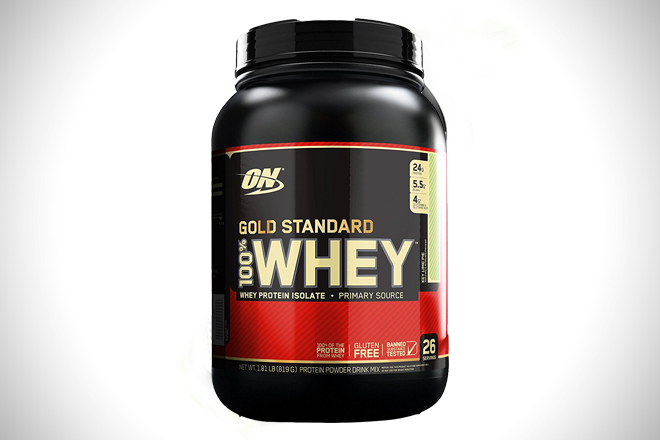
I’m including this for a few reasons. One, it’s cheap. You can generally get 29 servings for $30. You can find cheaper if you buy in bulk, but if GNC is your best option, this is the way to go. The ingredients list is short, and the protein is high. What more can you ask for?
2. Garden of Life Sport Certified Grass Fed Clean Whey Protein Isolate
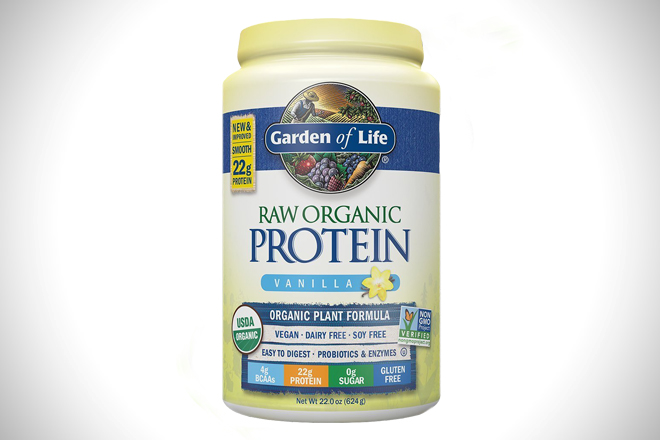
If you’re the type to buy all your food at Whole Foods, you want to go a little more all-natural than Gold Standard. Garden of Life has been at the top of the plant based protein game for a while now, but they’ve started branching out.
The great thing about this powder is the ingredients list. It’s real foods. It’s organic. It’s simple. If you look at the macros, you will see that there are 6 grams of carbs. However, there is zero sugar, and 4 of those grams come from dietary fibers. This is a clean powder.
Casein Proteins
3. MUSCLETECH™ NITRO TECH™ CASEIN GOLD
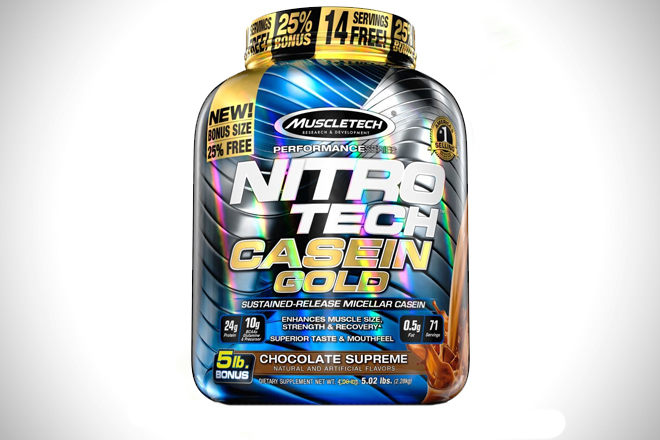
I tend to avoid any powders with overly flashy packaging, or names that try too hard to sound extreme. They’re usually loaded with filler. This is not the case with Muscletech. This casein protein has the macros you want, and none of the fluff in the ingredients list. Most nutritionists agree that casein is the best pre-bed protein. It’s slow burning, so your muscles have fuel to rebuild all night. It’s sold in bulk, so be prepared to drop some cash on a big supply, but it’s pretty cheap per serving.
Plant Based Protein
4. Vega Sport Protein Powder
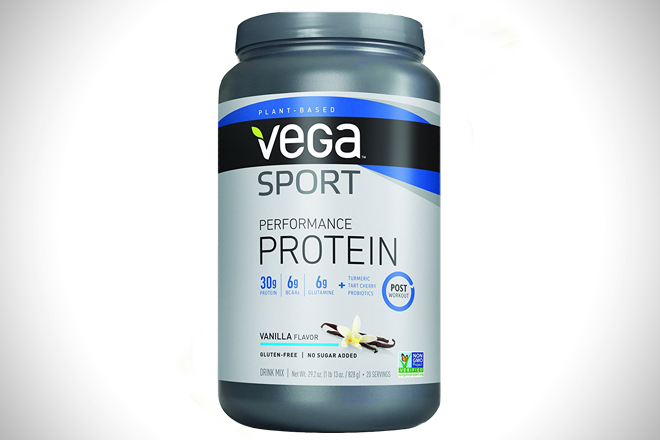
Alongside GoL, Vega pretty much controls the plant based market. There are a few other major players, but Vega really comes through for vegan athletes. This protein powder is a little pricey, but they throw in some extra BCAAs to make sure you really get that pump.
You may look at the protein list and think it looks a little long. Rest assured, that’s just because Vega uses 4 different protein sources. They also throw in some probiotics for stomach health, and a few other beneficial herbs and plants for flavoring.
5. MRM Veggie Elite Performance Protein
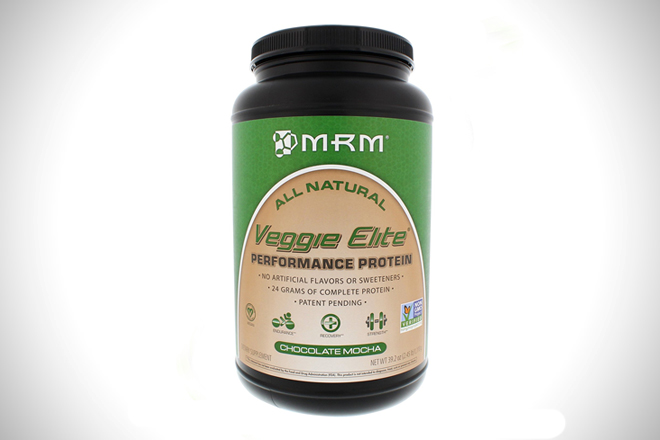
Our last protein is not only up there in grams of protein (24), but it’s also the cheapest on our list. But sleep easy knowing the quality of your powder is not suffering. This is packed with protein, and a little bit of fiber for good measure. It’s a complete blend of rice and pea proteins, sweetened with stevia and monkfruit, and they even throw in some digestive enzymes. This is a well crafted supplement for a serious athlete.
Now you’re armed with knowledge. Do some research of your own, or buy straight off this list. These are all quality proteins for the prime competitor or the casual group exerciser. We could all use a little protein boost. Drink up and get your swole on.
Added Ingredients
In a perfect world, protein powders would have one ingredient: protein isolates. Unfortunately, any powders that are truly just protein are going to taste terrible. So, of course, manufactures have to add flavoring and sweeteners. If your shake tastes awful, you’re not going to drink it.
The first thing you should check is the nutrition facts.
Go right on down to the sugars. If there’s any number higher than 2 or 3, pass on it.
There are plenty of healthy artificial sweeteners (e.g. stevia) that won’t throw your macros off. This should be nothing but protein.
Next, look at the ingredients list. On one end, you have your all natural brands that don’t believe in anything but pure protein. If you can stomach those, more power to you.
On the other hand, you have powders with Master’s thesis worth of ingredients. These tend to be the brands you pick up at the supermarket. They’re targeted at the young and the uninformed, so they want them to taste as delicious as possible.
Even if the macros check out, don’t bother. Keep it simple. You don’t know what kind of effects they might have on your body.
The only exception to this rule is mass gainers. If you’re unfamiliar, these are powders formulated like a meal replacer, but not meant to actually replace a meal.
They’re high calorie and should included some carbs and fats. That still doesn’t give them free reign to throw a a pound of sugar in, but there will be plenty of carbs.
Amino Acids
Amino acids are important, don’t get me wrong, but we approach them all wrong. Protein myths are a story for another day, but keep this in mind:
Not every bit of protein you eat has to have a complete amino acid profile. There are complementary proteins everywhere. Legumes and grains create a complete profile, which is why beans and rice have been a staple since man started farming.
As far as your powder goes, however, keep it complete. This is supposed to be a supplement for your diet, so unless you eat nothing but grains all day, balancing out the complementary aminos for a pea protein (not complete) is needlessly complicated.
The good news is finding complete protein powders is easy. All whey, casein, and soy proteins are complete, and if you find a soy-free plant-based powder, it’s almost always a blend of different isolates to give you a complete profile.
But this is why you won’t see any pure pea or pure brown rice proteins recommended on here. They have their place (they great for baking), but not on this list.